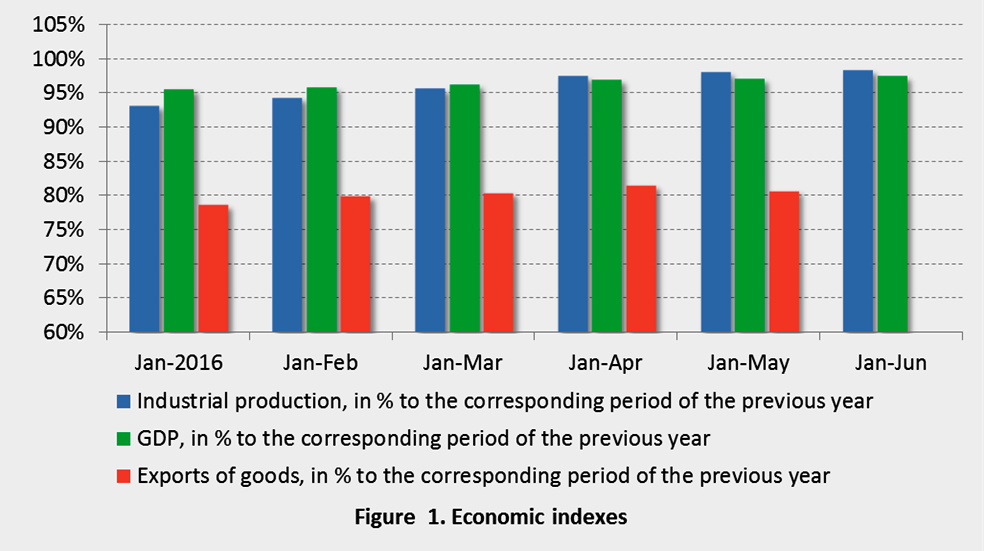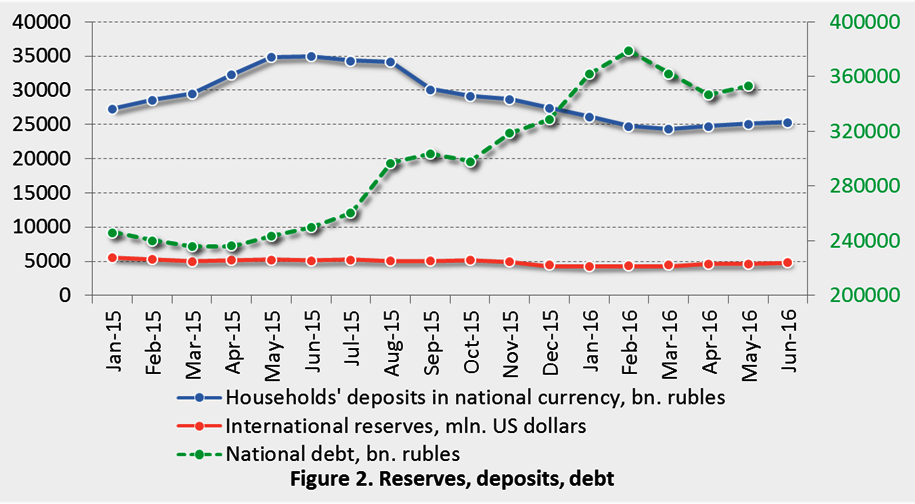2016 Ostrogorski Forum: Can Belarus be Neutral in the Shadow of Russia?

On 29 June the Ostrogorski Centre held the first Ostrogorski Forum on foreign policy and security in Minsk.
The theme of this year's conference was 'Inertia, strengthening neutrality or changing the foreign policy orientation? Foreign policy in Belarus at the present stage'.
The programme featured prominent Belarusian experts, both pro-government and independent, as well as government officials and academics from state universities. Researchers from leading Belarusian think tanks presented their papers and were critiqued by experts with opposing political orientations. The research papers were supported by the grant from the Mott Foundation and jointly implemented by the Pontis Foundation and the Ostrogorski Centre.
The Ostrogorski Forum is expected to become an annual event to promote professional and respectful dialogue between experts with different political views. This article provides a summary of the key themes of the Forum in English as well as full-length videos of the event in Belarusian.
Key messages of the 2016 Ostrogorski Forum
A number of speakers spoke of the need to view Belarusian foreign policy in a less binary way: more attention should be paid to the real interests of Belarus rather than the confrontation between Russia and the West. A more pragmatic and less ideological approach may help foster better relations with all of Belarus's neighbours and live up to the principle of neutrality enshrined in the Constitution of Belarus.
At the same time both pro-opposition and pro-government experts agreed that Russia would not permit Belarus to cross certain red lines, the most important of which being leaving Moscow-promoted integration initiatives such as the Eurasian Economic Union. An obvious geopolitical re-orientation could trigger a reaction from Russia resembling its actions in Ukraine.
The ability of Belarus to resist a Donbas-like scenario caused significant debate. Some argued that compared to Ukraine Belarus is less corrupt, and its military and state administration remain in much better shape. On the other hand, the weak national identity of Belarusians, the large number of Russian-born and educated senior military commanders, and the pervasiveness of Russian media make Belarus look weaker.
Most participants agreed that the domination of Russian media in Belarus represents one of the greatest challenges to Belarusian statehood. The popularly of Russian media is explained not only by generous funding but also by the fact that Russia has strongly articulated messages on its foreign policy, internal politics, and security. Belarus, on the other hand, has very few issues where it articulates its position; Belarusian media do not have their own message. This explains why many Belarusians supported the invasion of Crimea in 2014.
The participants also disagreed as to whether Moscow might soon become more assertive in Belarus given its deployment of troops close to the Belarusian border. Some argued that Russia is signalling its readiness to intervene in Belarus on short notice, while others thought that Belarus has done nothing to provoke Russia and Russia's interest are already protected in the country.
Some experts argued that Russian integration projects in the former Soviet Union will die a natural death. With the prices of oil and gas remaining low and a lack of modernisation and foreign investments in the region, integration projects become increasingly unattractive, which may explain why Russia increasingly resorts to the use of force or threats of force abroad.
The main threat to Belarusian statehood comes from a lack of pluralism in Belarusian political institutions. With no representatives of the opposition allowed in the parliament, courts, or executive, the statehood of Belarus is fragile. Allowing more pluralism in Belarus's political institutions would help Belarusian society reach a consensus on issues of critical importance for Belarusian statehood and independence. Allowing moderate representatives of the opposition into parliament would be a small step in this direction.
Ostrogorski Forum: introduction
Speaker: Yaraslau Kryvoi, Director of the Ostrogorski Centre, Editor in Chief of Belarus Digest
—
Soft power of Belarus in the region: assessment of potential impact
Speaker: Dzianis Melyantsou, senior analyst of the Belarusian Institute for Strategic Studies.
Opponent: Aliaksandr Shpakouski, director of informational and educational institution "Current Concept".
Moderator: Artyom Shraibman, political observer of TUT.by and associate analyst of the Ostrogorski Centre.
—
Russian-Belarusian relations after the conflict in Ukraine
Speaker: Ryhor Astapenia, development director and analyst of the Ostrogorski Centre.
Opponent: Uladzimir Snapkouski, professor of the Faculty of International Relations, Belarusian State University.
Moderator: Andrei Dynko, chief editor of Nasha Niva newspaper.
—
Challenges to Belarusian foreign policy and CIS countries after 2008
Speaker: Andrei Valodzkin, researcher at the Institute of History of the National Academy of Sciences of Belarus.
Opponents: Arsen Sivitski, director of the Center for Strategic and Foreign Policy Studies; Aliaksandr Filipau, Dean of the Faculty of additional education of the Belarusian State University of Culture and Arts and analyst at the Liberal Club.
Moderator: Yaraslau Kryvoi, director of the Ostrogorski Centre.
—
Neutrality: ideal or reality
Speaker: Siarhei Bohdan, a doctoral student of the Free University of Berlin and associate analyst of the Ostrogorski Centre.
Opponent: Valer Karbalevich, expert of the analytical centre "Strategy".
Moderator: Vital Tsyhankou, journalist of Radio Liberty.
—
Geopolitical orientation of Belarusians: sociological analysis and survey
Speaker: Andrei Eliseyeu, analytical journalist of the portal BEL.BIZ
Opponent: Alena Artsiomenka, analyst of the Belarusian Institute for Strategic Studies.
Moderator: Andrei Aliaksandrau, chief editor of the online resource Belarusian Journal.






